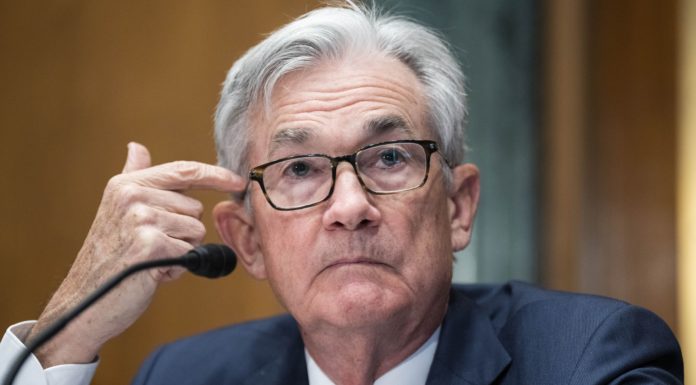(Daily Caller News Foundation) The Federal Reserve will not stop interest rate raises designed to combat inflation even if the policy leads to damages in the labor market and “pain” for everyday Americans, Federal Reserve Chair Jerome Powell said in a Friday morning speech.
The Fed chief reiterated the department’s commitment to returning inflation to 2%, and stressed that price stability was necessary for a sustainably strong labor market, according to a prepared transcript of his speech released by the Federal Reserve. Powell said that if the Fed was unable to reign in inflation through “restrictive policy,” the public’s expectation of long-term high inflation would make it more difficult to combat, as wage and purchasing decisions that anticipate inflation often contribute to inflationary pressures.
“We must keep at it until the job is done,” said Powell.
“History shows that the employment costs of bringing down inflation are likely to increase with delay, as high inflation becomes more entrenched in wage and price setting… A lengthy period of very restrictive monetary policy was ultimately needed [in the early 1980s] to stem the high inflation and start the process of getting inflation down to the low and stable levels that were the norm until the spring of last year. Our aim is to avoid that outcome by acting with resolve now.”
The speech came just four days after the National Association for Business Economics surveyed a panel of 198 private-sector economists, 78% of whom believed that the Federal Reserve would likely trigger a recession in the process of bringing down inflation.
Powell admitted in his speech that the Fed’s policy was going to cause a “softening” of the labor market. Powell has in the past pointed out to the relative strength of the labor market as an indicator for why the U.S. is not in a recession, according to The Wall Street Journal.
“Reducing inflation is likely to require a sustained period of below-trend growth. Moreover, there will very likely be some softening of labor market conditions,” he said.
“While higher interest rates, slower growth, and softer labor market conditions will bring down inflation, they will also bring some pain to households and businesses. These are the unfortunate costs of reducing inflation. But a failure to restore price stability would mean far greater pain.”



